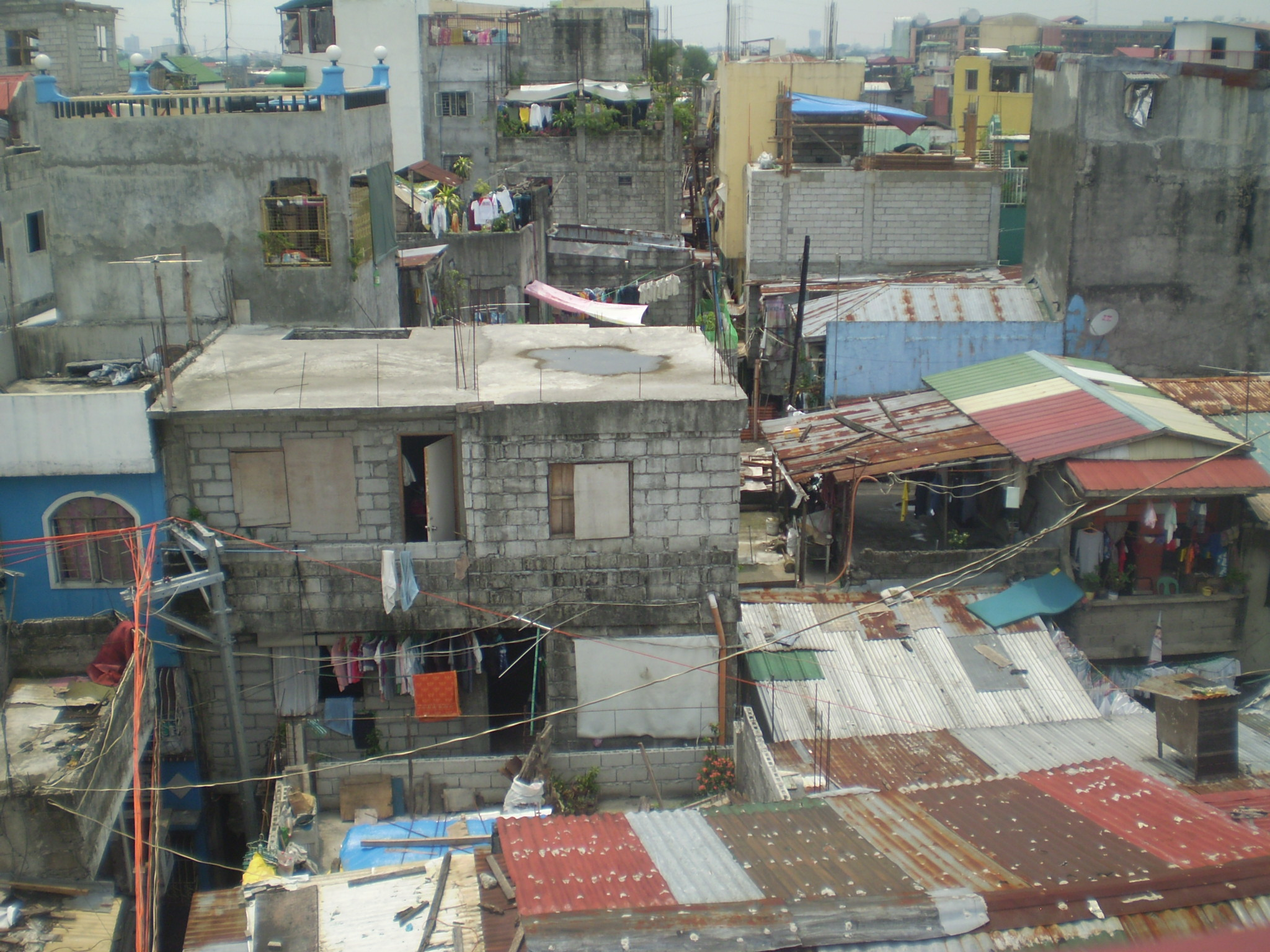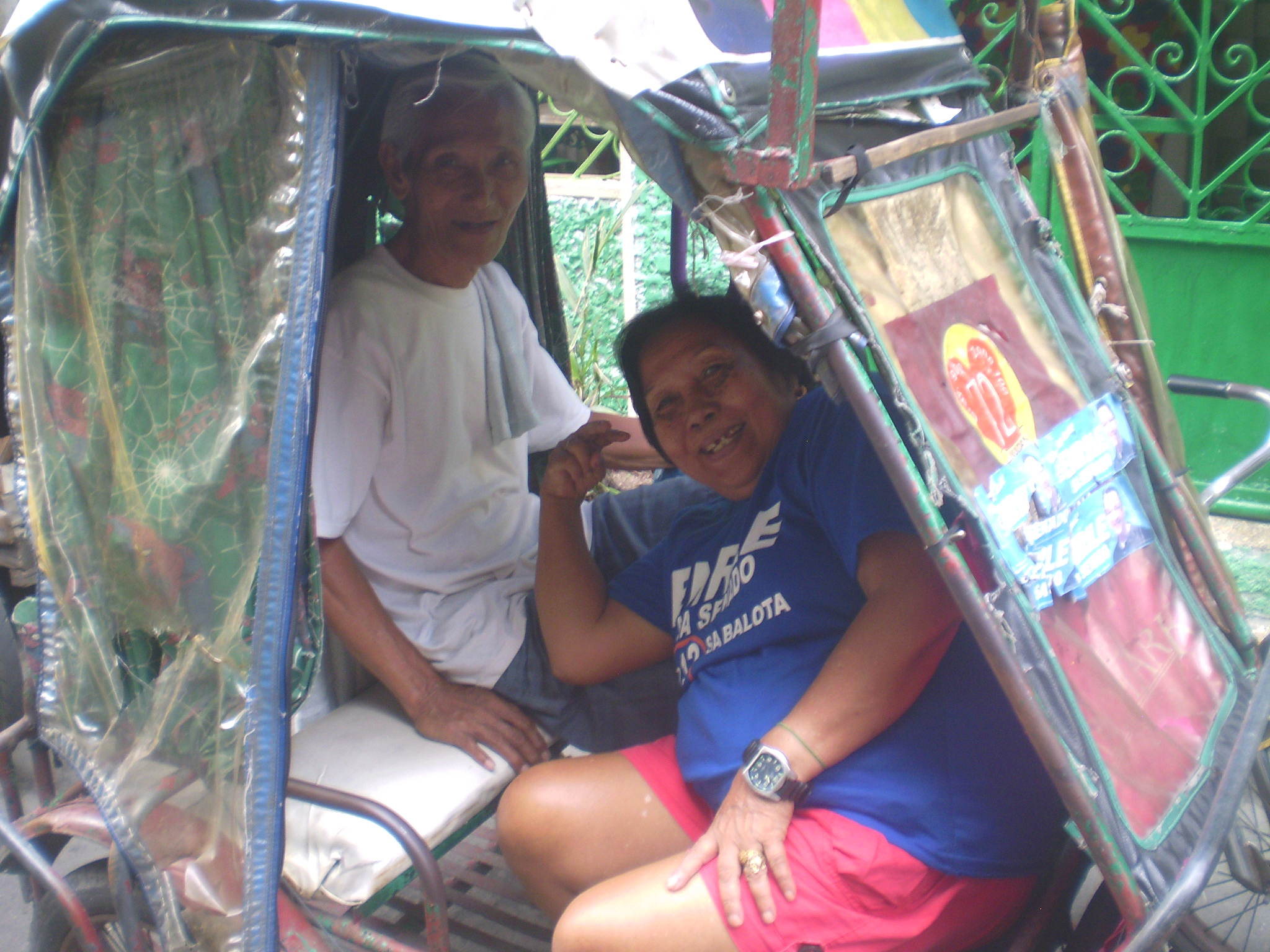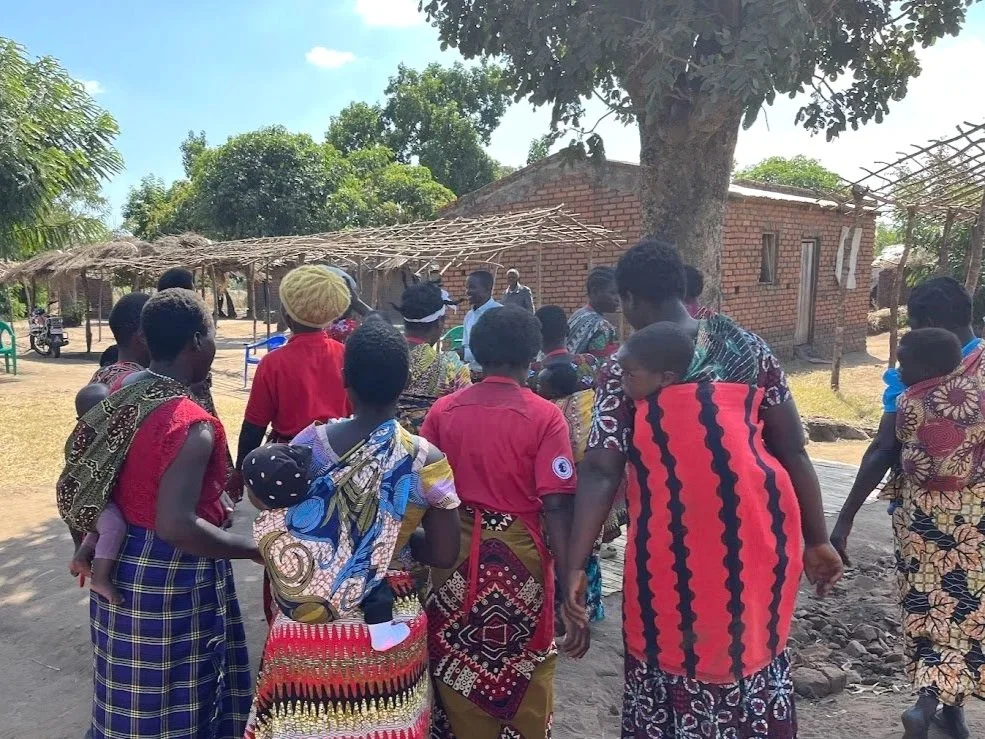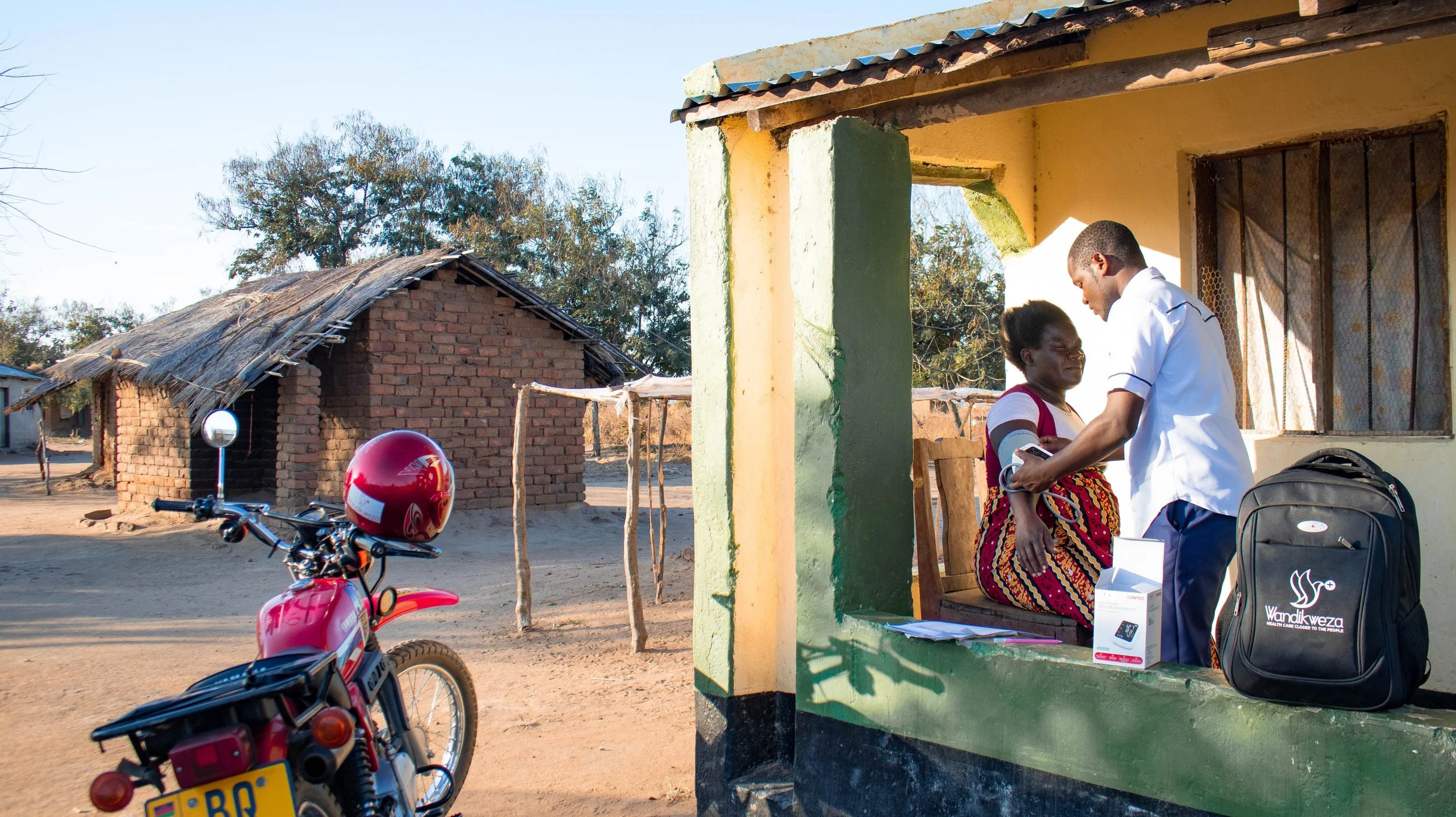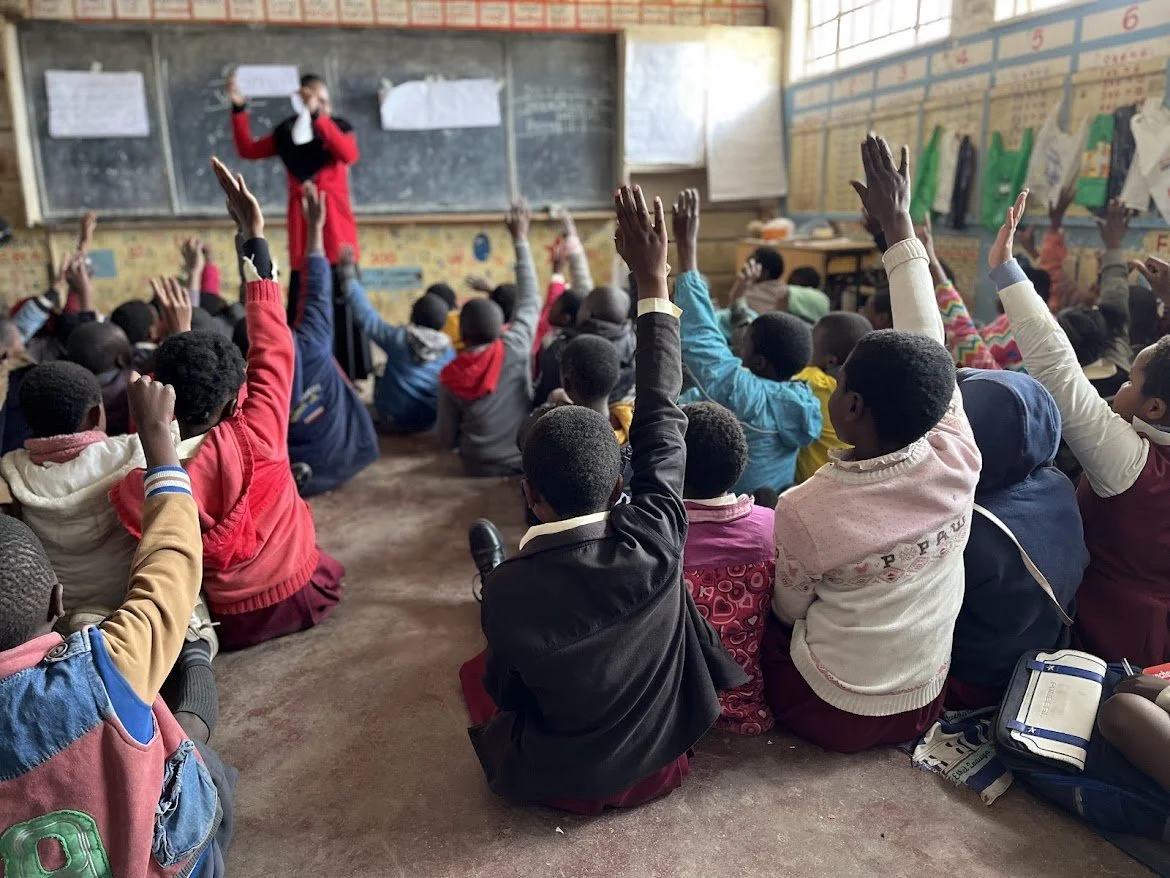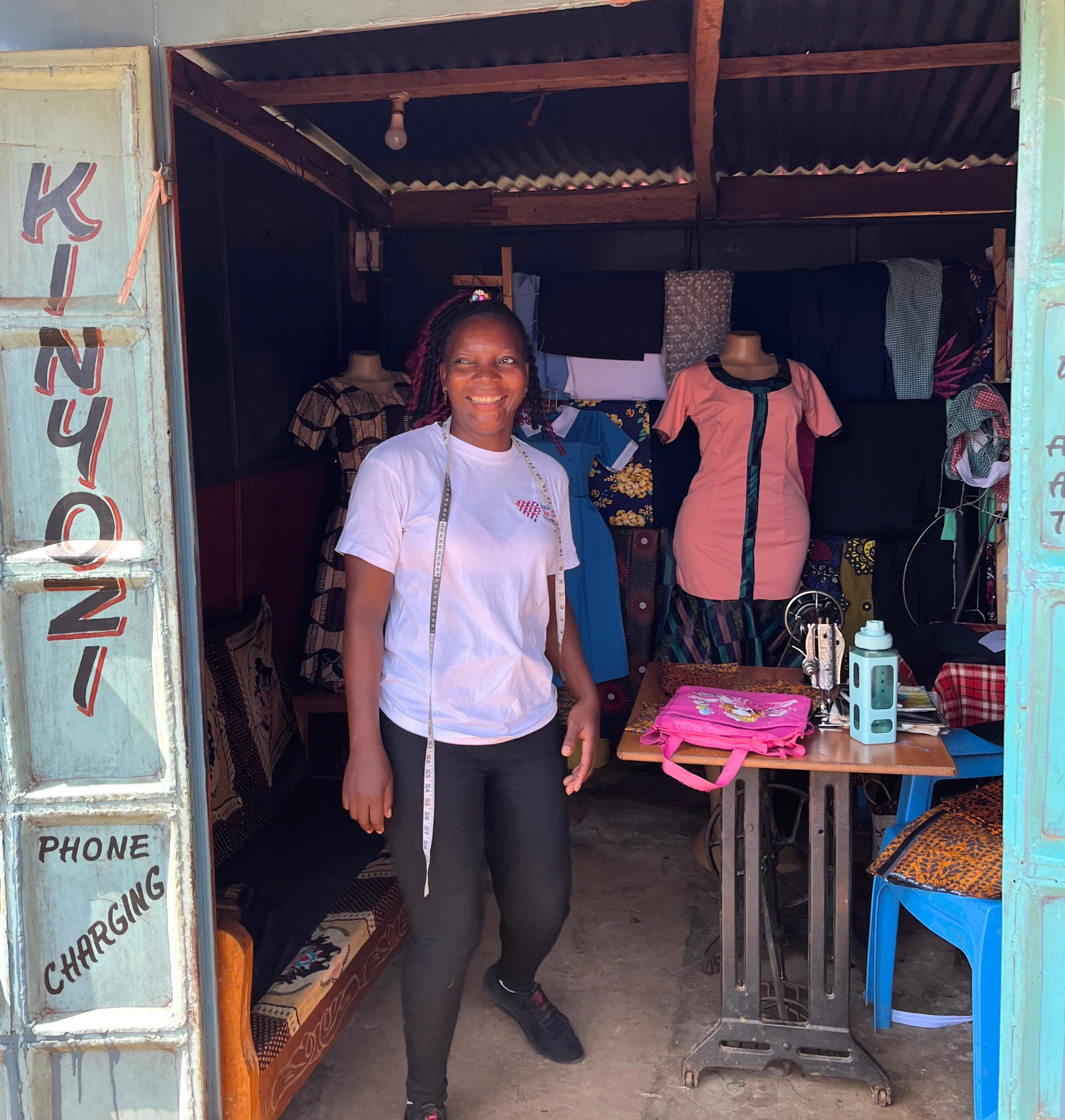I'm broke, but I'm happy. I'm poor, but I'm kind.
Actually when I was broke, I was wildly stingy and not nearly as kind as I thought I was. I remember walking around Osaka in 40C heat, desperately thirsty, and refusing to spend 100 yen on a drink because I could get water from the tap somewhere eventually. I did eventually get water - and heatstroke. Jo’s favourite story is the time I put a sandwich through airport security and after the flaps by the x-ray machine swiped the lid off it, I reassembled it and ate it so I didn’t have to spend a dollar on breakfast.
The view from my bedroom in Manila. I thought we were all in this together.
But here’s an embarrassing admission: when I was doing my Master’s research in the Philippines, I haggled with a rickshaw driver over five pesos. That’s 10 cents. I thought I had the right to pay what locals paid, since I was a resident (temporarily) with $500 in the bank and no income. Once my $500 was gone, so was I. My partner came to visit me and was like, “Christey, you’re haggling over 10 cents with a poor man. Aren’t you in this country to work out how you can best help poor people?”
Good point. How had I missed that?
It is ridiculous, but my partner’s flabbergasted comment opened my eyes to the fact that I actually could afford to pay 10c more than locals for my ride. It helped me understand to some extent why people would ask me to pay for their kids’ school fees, or tiles for their mud-floor kitchen. They didn’t see me as a broke student, they saw me as someone from a high income country who has opportunities in life that they maybe never will. That was the difference. Five pesos meant much more to that hardworking rickshaw driver than it did to me.
Sorry I’m a student, I can’t afford to pay an extra 10c for my ride.
When I went back to NZ, I received an academic scholarship worth $22,500 for my ‘important’ research. I’m pretty sure no one offered the rickshaw driver anything for his lived experience.
There are a lot of ideas - and stereotypes - about poverty and what it means for the people experiencing it. There are the helpless, needy, deprived people who need selfless do-gooders to save them. There are those who are happy with nothing, living off the untouched land, content in their idyllic and simple environment - “they’re the privileged ones actually, not us!” Then there are the gritty, determined superheroes who can handle much more pain, violence and gruel than ‘we’ ever could. “They’re so resilient, I don’t know how they do it.”
Perhaps there are some individuals who fit these reductive stereotypes, but as we know, humans are complex beings and the truth about “poor people” is that people with few resources are people with few resources. This makes life harder in terms of being healthy, having options, being safe. These disadvantages do make some people gritty and determined, whereas others feel understandably overwhelmed by how unfair the world has been to them, and prefer not to dare to dream it could be fairer.
People with few resources are… people with few resources.
As an organisation focussed on poverty reduction, we have a fine line to tread: we want to show the urgent needs people have, while maintaining their dignity and sharing the complexities of their lives: the joy, the hardship, the everyday curiosities. As much as we can, we give space for people to share their own stories in their own words. Because (as if it needs to be said) there’s not one correct way to frame people living in poverty to convince the world they are deserving of kindness. The fact is, if a human being doesn’t have clean water to drink, they deserve clean water to drink, whether they’re out hustling to survive, or enjoying the sunshine on a Monday afternoon. It’s poverty that isn’t right, not people.
Such beautiful, close-knit communities. We were jealous.
In July, the Just Peoples team travelled to Malawi and Kenya to visit communities we’ve supported. We brought along a group of donors who saw the work they funded come to life and met people who benefitted from their kindness. We all noticed how happy the people seemed as they welcomed us in with lively dancing and singing. Everyone in the village knew each other and were comfortable in their own skin. Their stunning bright-coloured clothing made them look even happier.
We thought about the contrast between these villagers and the people inhabiting cities we live in, where all our basic needs are met and then some, and people are suffering from depression, anxiety, stress, loneliness. There was no loneliness in these poor villages.
So what does that mean? That we shouldn’t support their economic development so they can stay stress-free and happy? Or that we shouldn’t romanticise their happy villages and lament the destruction of hope in our capitalist dystopias? For us as mere supporters, musings about how we think people should or should not develop may be interesting food for thought, but our ideas don’t affect anything materially because we have no skin in their game. It’s their life, their community, their decision. Local leaders show us their visions and we help out with funding.
Art, education, healing AND joy - all rolled into one gorgeous school.
And their visions really are something! In both countries we met so many people who are transforming people’s lives in such compelling ways. We visited a school that makes art, music and creativity an essential part of education, ensuring children who have suffered trauma are able to heal as they learn. We learnt about an education programme that arranges university graduates to volunteer to teach public schoolkids how to read, cultivating a spirit of contribution within the next (literate!) generation.
We went to a women’s skills training centre that not only teaches women how to sew, but ensures they know how to stand up to their husbands when domestic violence is present, and how to run a business and save money so that economic independence is fully achieved. And a medical programme that trains nurses to ride motorbikes so they can reach the most isolated pregnant women so no one misses out on essential pre- and postnatal care. A daycare centre that gives kids from a slum a real education, a nutritious meal, and helps their single mothers find safe, stable work so the children can be looked after properly at home too.
If a pregnant woman lives too far from a clinic, the nurse will come to her.
I could go on forever about countless initiatives that are happening, successfully, all over the world! Lives are becoming safer and better and we have the privilege of being connected to hundreds of leaders who are making this change happen. There is abundant good now being created in countries that missed out on the abundance that we’ve enjoyed.
Now, it’s not all sunshine and rainbows of course. The recent USAID cuts devastated the work of many people we visited. One woman providing jobs for disabled people had to fire half her staff and cut half her programmes overnight. One guy had signed a contract for a $600,000 grant from USAID and the night before the first $300,000 installment was due to land in his organisation’s account he received a sterile email from USAID informing him it’s no longer happening. Full stop. Screw your planning and your people. A particularly heartbreaking instance was for an LGBTQ org whose funding for HIV drugs was cut, and since gay people can’t go to public clinics to receive drugs in case they get reported for being illegal homosexuals (yes, it’s medieval), they stay at home without medication. Many have tragically died.
There’s nothing romantic about this unspeakable injustice.
Thank goodness there is so much amazing work that is being done to right some of our world’s wrongs. The vibrant, complex communities we visited in Malawi and Kenya strengthened our belief in this work as we witnessed the quality and quantity of great stuff happening in the region. With our whole hearts, we want more resources to flow through us to the remarkable people who are saving lives and creating opportunities - until everyone has their basic needs met and then some!
Simply because our fellow (resilient/disadvantaged/joyful/overwhelmed/gritty) human beings deserve it.
The next gen are being raised to aim high and give back.
This business woman is skilled, safe and financially independent. She’s loving it.

